
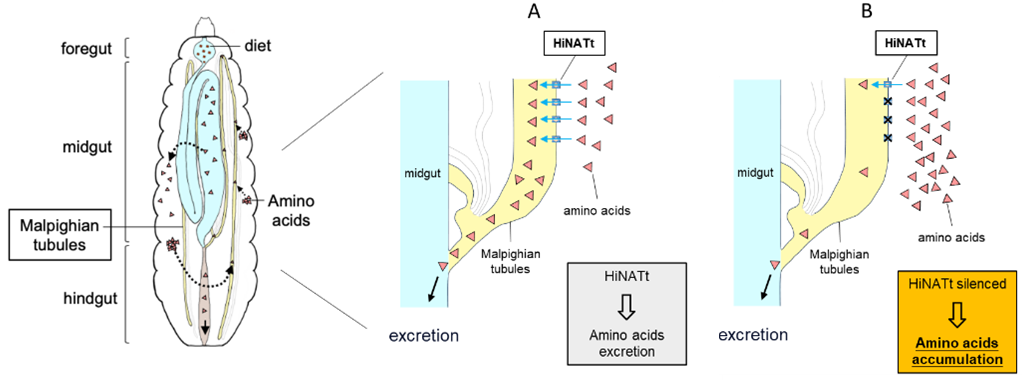
The larvae of the black soldier fly (Hermetia illucens, BSFL) are emerging as a promising alternative protein source for poultry and aquaculture feeds. However, a key challenge has been their inability to meet the requirements for certain essential amino acids that are crucial for the nutrition of farmed fish. A research group from NARO and the University of Tokyo has developed a method to enhance the amino acid levels in black soldier fly larvae by suppressing their amino acid excretion. This innovative technology lays the foundational approach for replacing fishmeal protein with insect-derived protein sourced from domestic food and agricultural residues, contributing to a stable food supply and sustainable food production through resource recycling. Read more

In the first part of "Secrets of Silkworms" we introduced the mysterious ecology of silkworm and the latest silk, such as the ultra-fine silk and fluorescent silk produced by genetically modified silkworms. Meanwhile, NARO has discovered new, previously unimagined value in silkworm silk, and conducting research to develop new materials that utilize its properties. In this edition, we will focus on new materials made from silk, which are expected to be used in new industries such as the medical field, medical hygiene materials, cosmetics etc. Read more
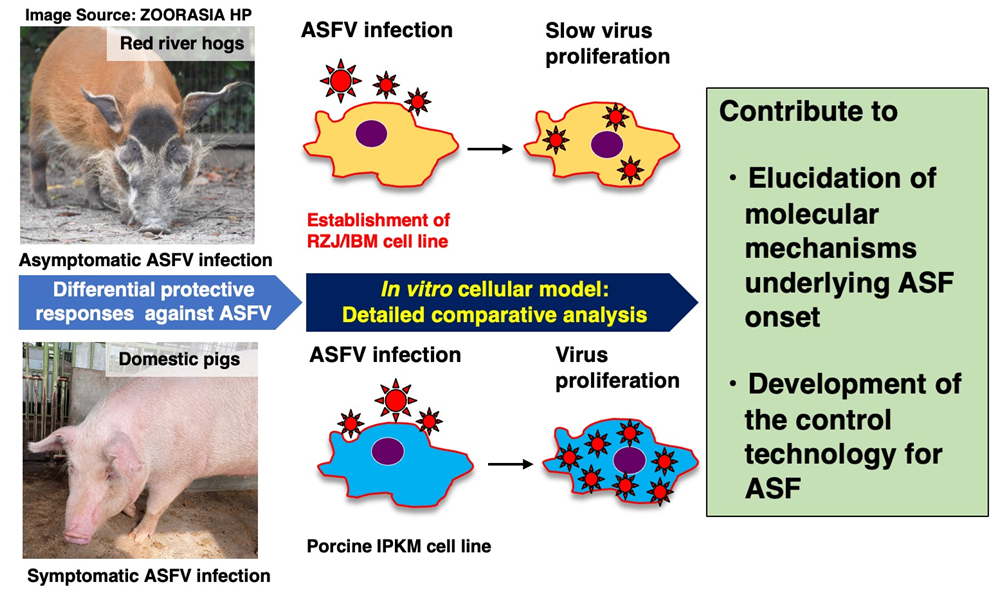
African swine fever virus (ASFV) infection is a major global challenge faced by pig farming. However, ASFV infection in Red river hogs (RRHs) is typically asymptomatic which is said to be a distinctive feature. Hence National Agriculture and Food Research Organization (NARO), in collaboration with Yokohama Zoological Gardens ZOORASIA, isolated macrophages, a type of immune cells, from the blood of RRHs which are not infected by ASFV and established a cell line that continues to proliferate over a long period of time. This cell line can be used to elucidate the pathogenicity of ASFV, which remains shrouded in mystery. It is also expected to be useful in the development of African swine fever (ASF) vaccine. Read more
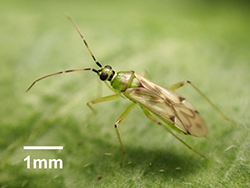
The National Agriculture and Food Research Organization (NARO) and the University of Miyazaki have revealed that the symbiotic bacterium Rickettsia, which widely infects Nesidiocoris tenuis—a natural enemy of agricultural pests such as whiteflies and thrips—affects the reproduction of N. tenuis by increasing the number of offspring from infected female. This finding demonstrates that the infection status of symbiotic bacteria is important for the efficient proliferation of N. tenuis. Optimizing the reproductive potential of N. tenuis through symbiotic bacteria could pave the way for improved biological control strategies using natural enemies. Read more
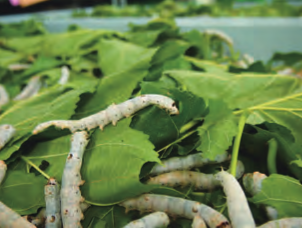
Many people may heard about the existence of Silkworms, but only few people have knowledge beyond "caterpillars that make cocoons from which silk is made", "eats mulberry leaves" etc. But actually, the silkworm is an amazing insect! Here, we will introduce the mysterious ecology of the silkworm and the latest Japanese Glowing silk that is gaining attention worldwide. Read more
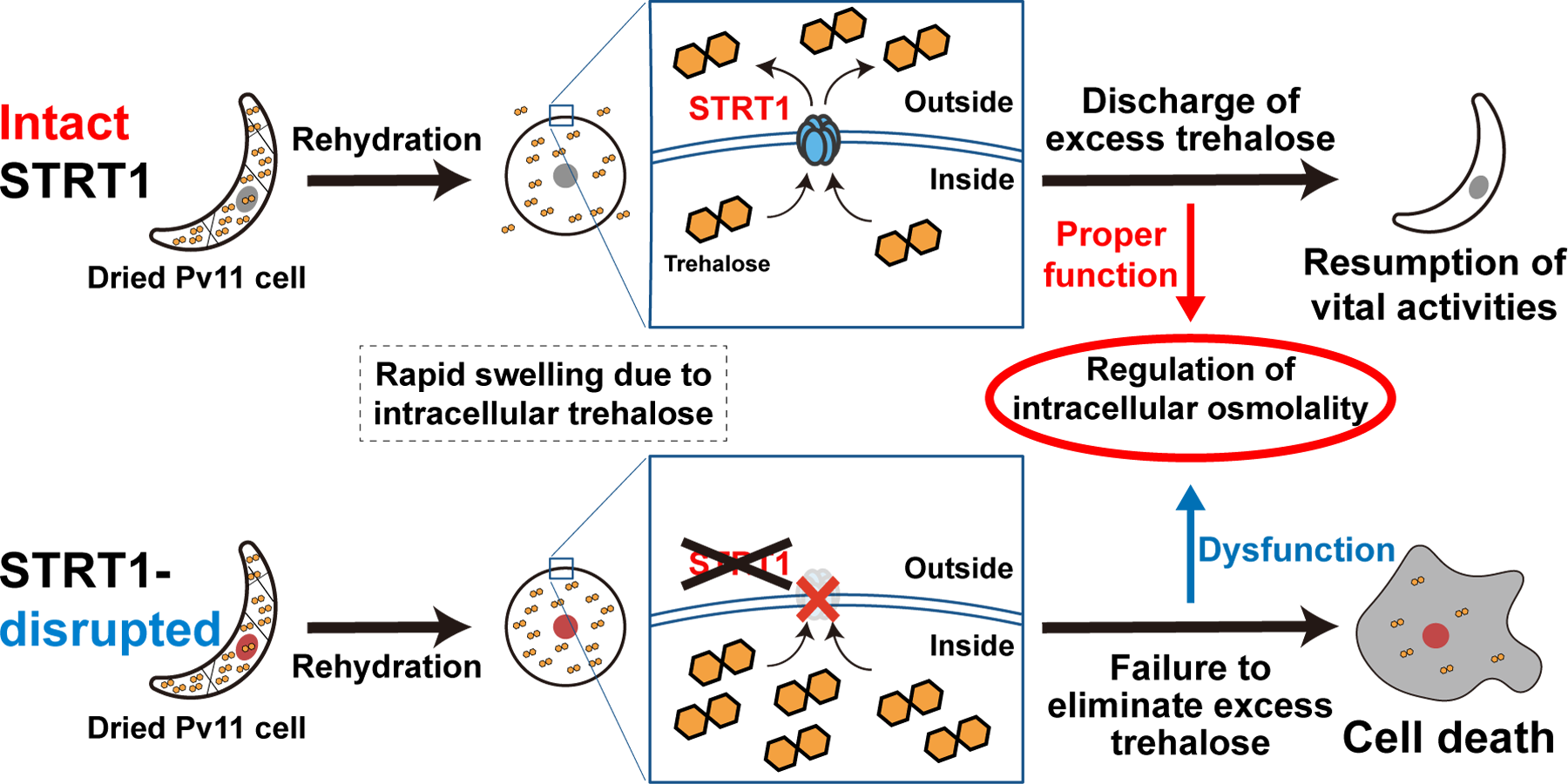
Pv11 cells, a cultured cell line derived from the sleeping chironomid Polypedilum vanderplanki that exhibits extreme desiccation tolerance, can be preserved in the dry state at room temperature for long term while retaining the capacity to resume proliferation. Nevertheless, the precise mechanism by which they resume their vital functions remains to be elucidated. A joint research team led by National Agriculture and Food Research Organization(NARO) has revealed that the recently isolated trehalose transporter STRT1 is responsible for the efficient release of trehalose, which acts as a desiccation protection in desiccated cells, into the extracellular medium upon rehydration. Read more